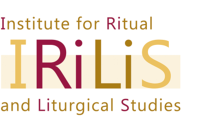IRILIS news
- CfP: From Table to Text or Text to Table?
University of Pretoria, 18-19 September 2025Traditionally, Reformed traditions focus on the text. The mastery of ancient languages is pivotal, as a high priority is placed on the ability to discern the source texts in their original languages. But the question looms whether this is truly practised? Ministers often report not using the source texts in sermons. Some church fathers also had trouble understanding the source languages, for example, Augustine, whose proficiency in Greek was not good, needless to mention his Hebrew abilities. It seems that traditions that do not place a high value on the text, such as Pentecostal traditions, thrive, and are expanding while reformed traditions are in decline. - Out now: Yearbook for Ritual and Liturgical Studies volume 40In December 2024, volume 40 (2024) of the Yearbook for Ritual and Liturgical Studies has appeared.
- Out now: Sing after God a new SongDr. Henk Vogel successfully defended his PhD thesis Sing after God a new song: Ritual-musical appropriations of Psalms in contemporary Dutch and Flemish culture on 28 November 2024.
- Out now: The Visuality of Texts in Calvinist Churches in the Dutch RepublicText panels, such as those depicting the Ten Commandments, are an equally characteristic as overlooked part of historic Dutch Protestant church interiors. This book by dr. Jacolien Wubs (academic coordinator IRiLiS) shows how, after iconoclasm in Dutch Calvinist churches, text decoration evolved into an innovative form of visual culture, and was used to transform church spaces to accommodate Reformed worship.
- Upcoming: Volume 33 Liturgia CondendaIn the course of this year, a new volume of our book series Liturgia Condenda will appear, authored by dr. Johan Bastubacka (University of Helsinki) and entitled: The Embodied Space of Worship. Liturgical Signs and Liturgical Bodies in Contemporary Finnish Orthodox Lay Worship. This book focusses on the active, bodily and nonverbal participation of lay people as a defining yet unexplored aspect of the Orthodox Divine Liturgy.
- Prof Mirella Klomp appointed scientific director of IRiLiSOur former director Prof Marcel Barnard delivered his exaugural address in May of this year, thereby bidding us farewell. Since then, Prof. Mirella Klomp acted as interim director. The board of IRiLiS is pleased to announce that it has now unanimously approved the appointment of Prof Mirella Klomp as the institute's new scientific director.
- Yearbook for Ritual and Liturgical Studies listed in DOAJAs of now, the Yearbook for Ritual and Liturgical Studies is referenced in The Directory of Open Access Journals (DOAJ).
- Introduction new projects and researchersTwo new researchers will start this month on different projects related to IRiLiS.
- New Academic Coordinator IRiLiSIn February 2024, Jacolien Wubs replaced Janieke Bruin-Mollenhorst as coordinator for IRiLiS.
- Continuous publications in the Yearbook for Ritual and Liturgical StudiesThe Insitute for Ritual and Liturgical Studies and the board of the Yearbook for Ritual and Liturgical Studies are pleased to announce a continuous publication model for articles in the Yearbook for Ritual and Liturgical Studies.

